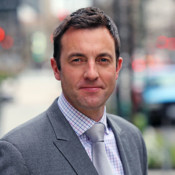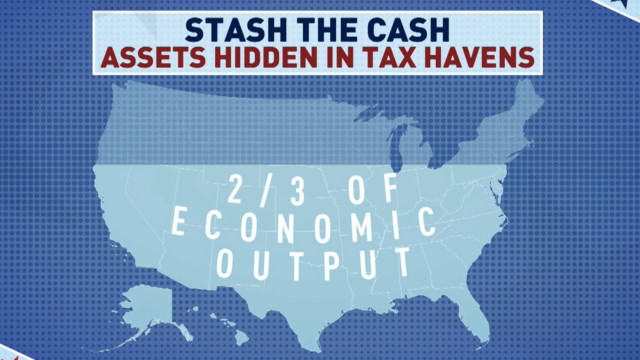All presidential candidates argue about taxes. But in this election, Donald Trump’s candidacy has made it very personal. Whoever gets elected needs to look beyond personal tax matters to make some of the world’s biggest companies pay more. CCTV’s Owen Fairclough explains why.

There’s usually nothing like the word ‘tax’ to turn people off an election. But this one is different.
Donald Trump’s refusal so far to divulge exactly how much he’s paid breaks a presidential candidate tradition that goes back to Richard Nixon in the 1970s.
Tax experts think his losses of nearly a billion dollars from his failed casino ventures helped him avoid taxes, legally, for as long as 20 years.
U.S. companies are also under scrutiny, as Apple discovered when it was ordered to reimburse Ireland’s government $14 billion.
That 14 billion is pocket change when we look at this globally. American companies alone are believed to have $600 billion stashed away in tax havens.
Developing countries may have as much as 12 trillion dollars in assets that should be taxed. That’s more than two-thirds of the annual U.S. economic output.
Both Hillary Clinton and Donald Trump have different methods for trying to stop U.S. companies parking profits overseas. Trump would encourage the likes of Apple to repatriate those profits back to the U.S. with a one-off 10 percent tax.
He’d also cut business taxes to 15% and lower personal income taxes.
Clinton says she’ll close loopholes and impose an exit tax for any U.S. companies who shift operations overseas. And she’s targeting the rich with higher taxes for those earning over 5 million dollars.
It’s unclear what these tax plans would do for U.S. debt. But the most recent independent study found Trump would add trillions to the debt pile, while Clinton’s would reduce it.
Joe Minarik on tax disputes over American tech companies
To discuss tax disputes involving American tech companies and both Presidential candidate’s plans, CCTV America’s Rachelle Akuffo spoke with Joe Minarik, senior vice president and director of research for the Committee for Economic Development (CED).
 CGTN America
CGTN America


